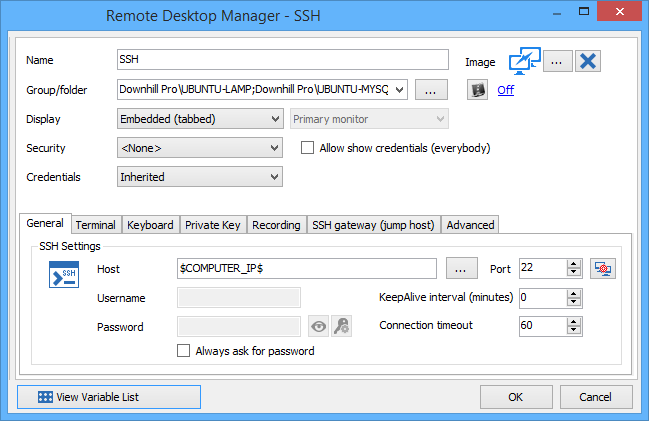Hello RDMers,
If you’ve been working in a team environment, well we all know how much handling the credentials for everyone can cause you a headache! Here is a little something that may simplify your life and make your headache disappear!
I am sure that if you're already one of our RDMers you probably have been using our Inherited credentials since they are a quick way of using the same credentials for different session, but how much do you really know about our Dynamic Variables? Well its time to take a deeper look at them!
So lets say that you have an SSH session and it's configured to use the inherited credentials. The Inherited credentials will be looking for the credentials in a higher folder. But did you know that you could also use the Inherited to search for an IP address? You would just have to enter the variable $COMPUTER_IP$ in the Host field and it will search for the IP field in the above folder, it will keep going up until it finds the necessary field and will stop at the first level where the fields matches.


Now that your session is all set up, you could just create a shortcut and use that same session in another folder without having to recreate anything. That same session, configured one way, will always use the credentials from the containing folder and the IP address for the above folder of the computer type. The same session could be used dozens of time and that way you could save yourself a looooot of time!
Here are some of the Variables that could help you in your day-to-day work:
- $DOMAIN$ - Returns the domain found in the configured credentials
- $HOST$ - Returns the host name if its available (server name, IP address…)
- $NAME$ - Returns the session names
- $PASSWORD$ - This variable is replaced by the password
- $USERNAMES$ - return the user name found in the configured credentials
As always, please let us know your thoughts by using the comment feature of the blog. You can also visit our forums to get help and submit feature requests, you can find them here.




